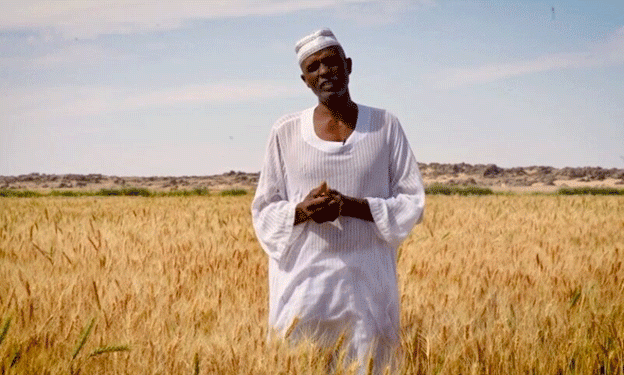Sudan, a country heavily reliant on agriculture, is set to receive a significant boost in its wheat production efforts. The African Development Bank (AfDB) has pledged $100 million to finance the second phase of a wheat project aimed at improving food security, following a sharp decline in grain production due to conflict. The project will be managed by the UN World Food Programme (WFP) and is expected to commence next year.
Addressing Wheat Shortages Amid Conflict
The announcement comes at a critical time, as Sudan’s wheat production has been severely impacted by internal conflicts. According to the Food and Agriculture Organization (FAO), the country’s grain output dropped by 46% year-on-year, exacerbating the food security crisis. This funding is part of a broader effort to stabilize the nation’s agricultural sector, which accounts for 80% of employment and contributes 32.7% of the national GDP.
The first phase of this project, implemented between 2022 and 2023 with a $76.8 million grant from the AfDB, provided climate-adapted wheat seeds and fertilizers to over 170,000 smallholder farmers. This intervention resulted in the production of 645,000 metric tons of wheat, covering approximately 22% of Sudan’s total wheat consumption. The success of this initial phase highlights the importance of strategic agricultural investment in bolstering food security during times of instability.
Second Phase: Scaling Up for Sustainability
Building on the achievements of the first phase, the second phase of the project will focus on scaling up wheat production to meet a larger percentage of the country’s needs. This will involve increasing the distribution of high-yield wheat seeds, improving access to modern farming equipment, and enhancing agricultural practices that are resilient to the impacts of climate change. The AfDB aims to empower more farmers with the tools and knowledge necessary to boost yields while adapting to changing environmental conditions.
The role of the WFP in overseeing the implementation of this project ensures that international expertise will continue to guide the program’s progress, ensuring that smallholder farmers can produce wheat more efficiently despite the country’s challenges. Sudan’s agricultural potential, if fully realized, could reduce its reliance on imports and help stabilize the economy.
A Strategic Investment in Sudan’s Future
The African Development Bank’s continued support of Sudan’s wheat production is a strategic investment aimed at alleviating the country’s food insecurity. As the second phase of this project is set to launch, it is expected to make a significant impact on the nation’s wheat supply, benefiting both farmers and consumers. By enhancing local production, the project will help Sudan meet more of its own food needs, even in the face of adversity.
For the broader agricultural community, Sudan’s experience serves as a reminder of the crucial role of external funding and climate-adapted technologies in securing food production under challenging conditions.
Error





